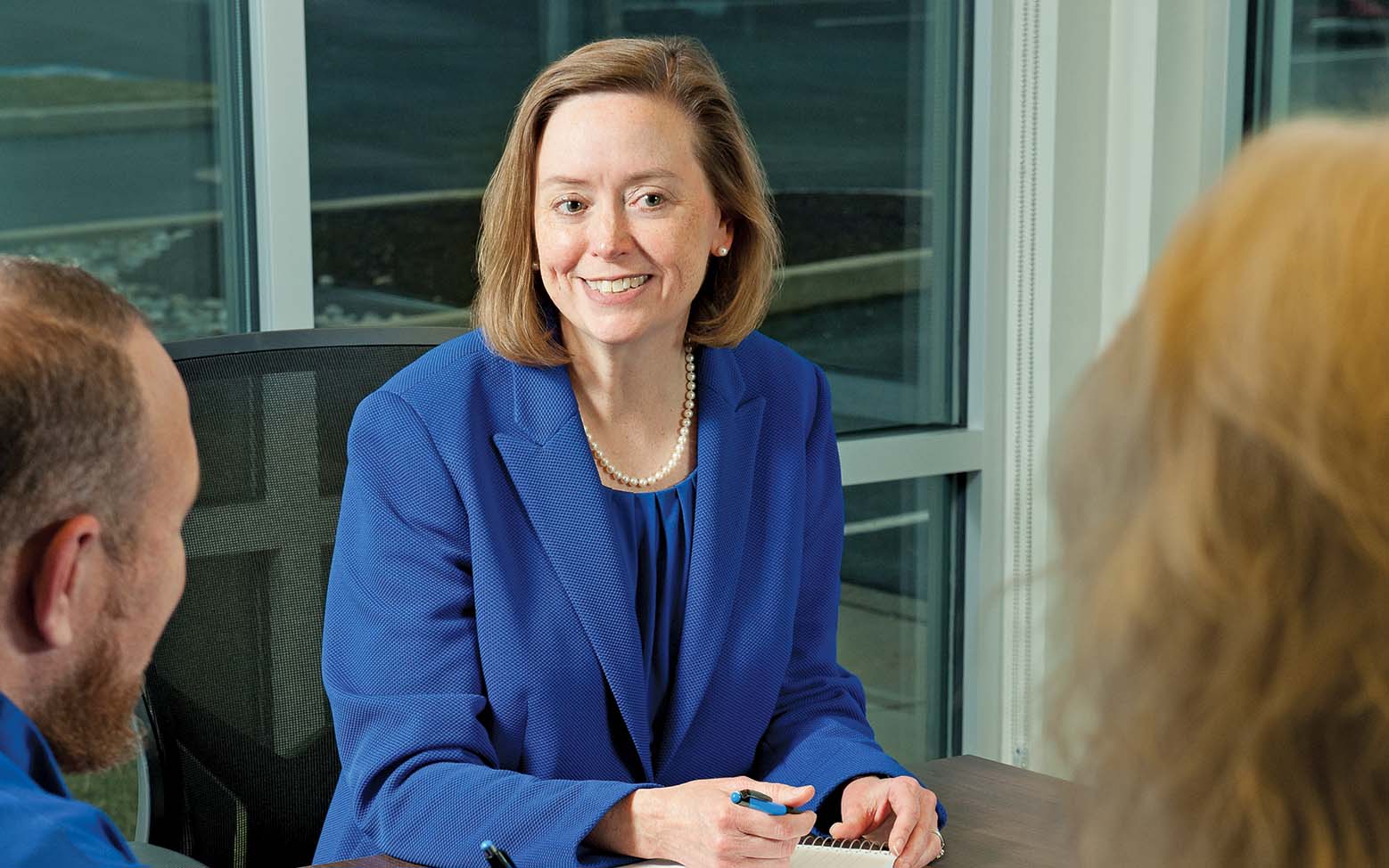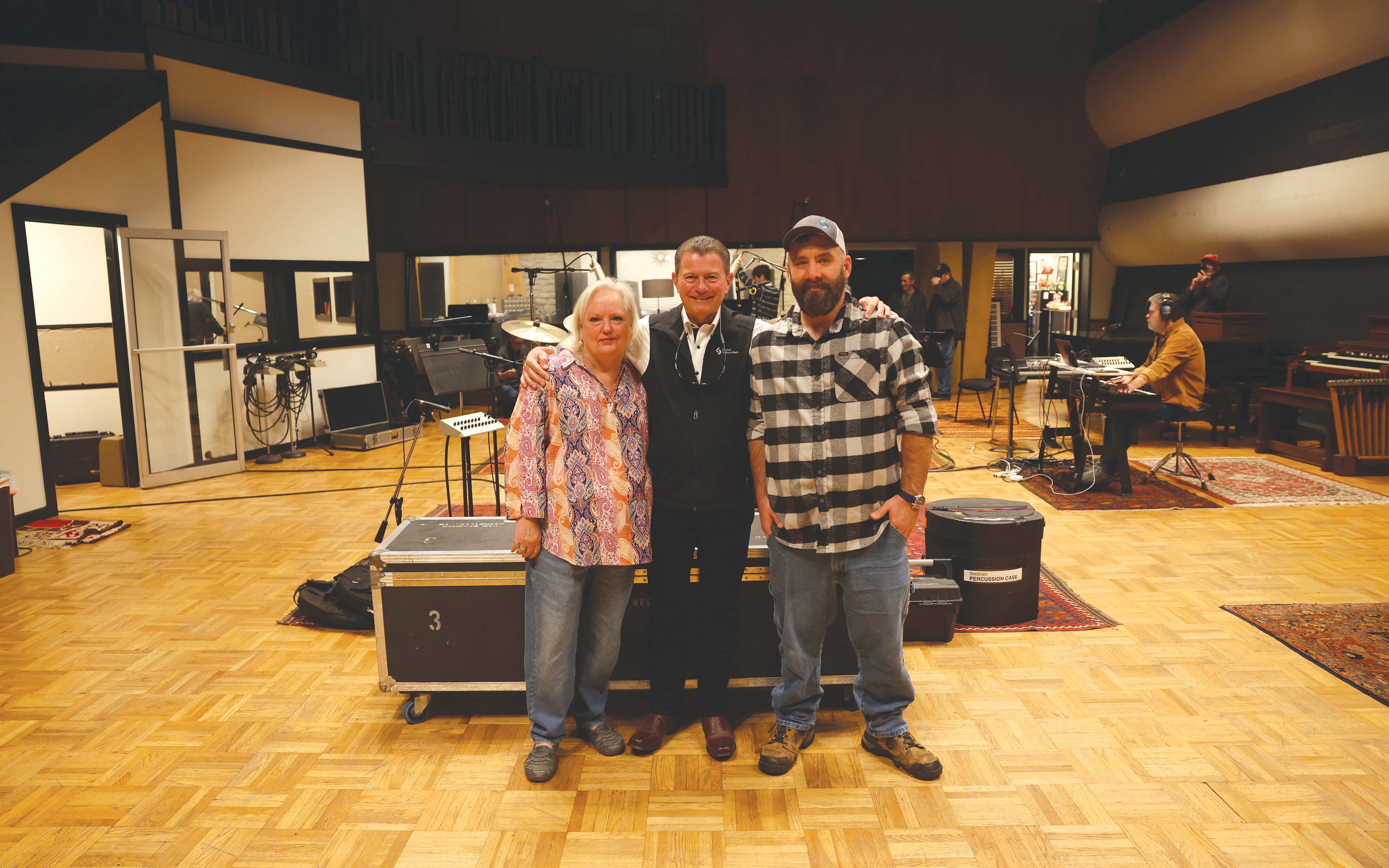Family-run community banks, like any family business, come with both strengths and challenges. Family members from three family banks tell us about their paths to community banking, and what it takes to maintain strong connections both inside and outside work.
Establishing the Right Dynamic at Family-Owned Banks
1024 NMB 2k
October 01, 2024 / By Ed Avis
Family-run community banks, like any family business, come with both strengths and challenges. Family members from three family banks tell us about their paths to community banking, and what it takes to maintain strong connections both inside and outside work.
If there’s anything that leaders of family-run community banks know, it’s that you can lead a horse to water, but you can’t make them drink. Children of community bankers have often grown up at the bank and are often well prepared to carry the bank forward, but they can’t just waltz into the lobby one day and expect to lead—plus, not all of them want to.
A successful integration of a new generation, their family members tell us, involves education, preparation and humility.
Earning a place at New Market Bank
When sisters Anita Drentlaw and Karen Ramola were kids, the community bank their father ran, New Market Bank in Elko New Market, Minn., was a totally familiar place.
“Our school for third and fourth grade was literally half a block away from the bank, so every day after school, I would go down and say hi to everybody,” Drentlaw says. “And it was widely known that we couldn’t participate in the [bank-sponsored] coloring contests and the drawings that were held in grade school.”
When Drentlaw was a preteen, she started working at the community bank—which now holds $195 million in assets—as a cleaner. Ramola, who is three years younger, took over that gig when her sister advanced to check sorting.
Both sisters graduated from the University of St. Thomas in St. Paul, Minn., where Drentlaw’s daughter and part-time teller Mikayla is now enrolled. Drentlaw majored in accounting, and Ramola earned a degree in entrepreneurship. But they didn’t move straight home and come to work at New Market Bank; the family has a rule that children have to work somewhere else for at least two years before joining the business.
“That’s to prove that you can do it, so there’s a definite understanding to every team member at our bank that you’re not just given this position; you’ve earned it,” Drentlaw says. “After I graduated, I worked for a public accounting firm for two years in their financial institution group and got my CPA license.”
Drentlaw joined the bank in 2002 and worked in operations. Ramola followed a similar path. After graduating, she spent two years working for a community bank in St. Paul, until New Market Bank created the position of retail marketing manager. It wasn’t a slam dunk that she would get that job, however.
“Dad was like, ‘Well, go ahead and interview her, see if she’s a good fit,’” Ramola says. It turned out that she was just that, and she started in that position in 2005.
For a while, both sisters aspired to become president. A leadership coach helped them determine their strengths and weaknesses, and Ramola decided being president would not be the best role for her. Drentlaw eventually became CFO and transitioned to president in 2014, and Ramola was named vice president of retail and marketing in 2021.
How do the sisters and their father, Bob Vogel—who today serves as credit analyst and chairman of the board—work together?
“When I first came back, working with my dad was easy,” Drentlaw says, adding that managing the bank together through the recession years especially helped her grow. “I wanted to soak up every piece of knowledge that I could. We got along amazingly.”
Now that Drentlaw is president, she and her father sometimes differ on certain issues. For example, Drentlaw sees banking for the cannabis industry as a growth opportunity, while her father was hesitant at first. After working through their differences, the two decided to pursue the market.
As for the sisters, their respect for each other has grown over the years. And when Drentlaw comes into Ramola’s office to talk, she makes clear whether the conversation will be sister-to-sister or president-to-vice president.
“I’ll say, ‘Wait, before you start talking, what are we?’ And she’ll be like, ‘You’re my sister,’ or she’ll say, ‘I’m the president,’” Ramola explains. “I think the biggest thing is we’ve learned to ask for clarification.”
Shop talk? Nearly inevitable
It’s commonly accepted wisdom that work should be left at the office. But for community banking families, shop talk is difficult to avoid—and some of them don’t want to avoid it. “We have never been great about just ‘leaving the bank at the bank,’” says Anita Drentlaw, who is president of New Market Bank in Elko New Market, Minn., working alongside her father Bob Vogel and sister Karen Ramola.
Ramola, who is vice president of marketing and retail, agrees: “It’s hard, because this isn’t just a job. This is our lives; this is our being. And our kids know that, too. They get it.”
Lucas White, president of The Fountain Trust Company in Covington, Ind., concurs. “Yes, [my father Kip, brother Campbell and I] talk shop all the time. It’s what we enjoy. I mean, we spend all day together running the bank. So, when you talk about it at the dinner table on Thanksgiving, it doesn’t strike us as work, really.”
That doesn’t mean other members of the White family enjoy the work chatter, however. “It might make our wives a little mad,” Lucas concedes.
Putting the ‘trust’ in Fountain Trust
Lucas White says his parents never pressured him to join the family bank. In fact, they encouraged him to “do his own thing” and not worry about coming back. But, intentionally or not, that parental attitude fueled his desire to join the business, The Fountain Trust Company, in 1995.
Today, Lucas is the president of the $650 million-asset community bank, which is based in Covington, Ind., and has 16 locations across the western part of the state. He lives in and is raising his own children in the town where he grew up, and lives right across the street from his parents. “So, I haven’t gotten very far,” he jokes. “In my entire life, I’ve literally moved 1,500 feet!”
Not only does Lucas live close to his parents; he also works with his father, Kip White, who is chairman and CEO of The Fountain Trust Company. Kip’s grandfather, William Nelson White, purchased the community bank in 1940, and Kip joined the bank in 1969. Even Lucas’ brother Campbell works there, serving as executive vice president.
In other words, The Fountain Trust Company is a true family business. “We have our fights, but generally we work very well together,” Lucas says. “When it comes to any big decision—whether it’s a strategic decision, whether it’s a big dollar amount, whether it’s a big relationship—we make sure that all three of us know what’s going on.”
Kip began teaching his sons about banking fundamentals when they were children. Lucas says his dad did not teach him how to throw a baseball, but he did teach him how to read the financial statement of a bank when he was 10 or 11.
Lucas first began working at the family bank when he was a freshman in high school. He worked the teller line after school and on Saturdays for a year and a half, then moved into the community bank’s data center, where he input new accounts. While he was in college, he worked summers at the bank, and one summer, he established a new asset liability model.
“Throughout high school and college, I basically worked in every department of the bank for a period of time,” he says, “which is a very good way to learn banking.”
Thus, when he formally joined the bank full time after graduating from law school, Lucas knew his way around the place, and the staff knew him well.
Kip promptly gave him the job of managing the bank’s investment portfolio and asset liability—big jobs for a young banker—and having those responsibilities cemented Lucas to the family business.
“I think that was very important, because I wasn’t just a puppet earning a paycheck,” Lucas recalls. “I actually had something I could do and manage. I think that’s a very important thing that a lot of families miss, especially if the older generation wants to hold on a little too long and control everything. That can be very frustrating for the younger generation.”
As for Campbell, he worked five years at a law firm before returning, which gave him a different set of experiences to draw on.
“It is very helpful to have that outside work experience,” says Kip, “but if you’re going to get somebody back, you’re going to have to do it before they’ve really put down roots somewhere else and are mid-career.”
What advice does Kip have for other family-run banks? “I think one of the important things is the old man can’t be an autocrat,” he says. “The young guys—whether they’re family or other good employees—they all have their own ideas. And you can’t squash that, not if you’re going to keep them.”
He also advises that family members working in the bank should savor the opportunity to work together: “Have fun and enjoy each other!”
“The young guys—whether they’re family or other good employees—they all have their own ideas. And you can’t squash that, not if you’re going to keep them.”—Kip White, The Fountain Trust Company
First National Bank Colorado thrives on mutual respect
Dale Leighty never thought his son, Quentin, would join the family bank, First National Bank Colorado in Las Animas, Colo.
“I remember him saying that he wouldn’t want to be a banker,” Dale says. “‘All we do is have meetings, and that would be so boring.’ And so, when he decided to be a banker, you could have knocked me over with a feather.”
Quentin remembers his plan was to become a history teacher and coach. But he took some business classes in college and enjoyed them—and, slowly, his mind changed. Today, he is the bank’s chief financial officer.
However, as with many children who join the family bank, Quentin did not move directly from college to $563 million-asset First National. His wife was pursuing a master’s degree in Seattle, so he landed a job with a community bank there.
“I was on the finance team, so I got to work on financial reporting but also strategy on the asset liability management side of things and bond portfolio management,” he recalls. “It was a small bank, $180 million with two offices, but very sophisticated and with a mindset for going outside of the box. So, it was a really good opportunity for me.”
A couple of years later, a lender position opened at First National. Quentin and his wife were expecting their first child and wanted to be closer to family, so the move back home made sense. He joined the community bank in 2005.
Quentin says working with his dad has been easy. “I watched from when I was a little kid the effort that’s gone into making this the bank that it is,” he explains. “I’ve always had a major respect for my dad, and we’ve worked well together on whatever it is we do.”
Dale returns the respect. He says Quentin—who is also the market president for the community bank’s locations near prosperous Colorado Springs—has brought the bank to a higher level of success because of his disciplined approach to pricing and deep market knowledge.
When asked for advice about integrating a new generation into bank leadership, Dale says it’s important to treat children the same as other new employees and, if they’re qualified, give them room to do their jobs.
“I think it’s important to not send the message that the son or daughter who’s coming back is entitled to more privileges, but also that they don’t have to bust their keister to prove themselves,” he says. “And it’s so important to not micromanage or breathe down their neck.”
“It’s so important to not micromanage or breathe down their neck.”—Dale Leighty, First National Bank Colorado
Respect is earned
When Quentin Leighty returned to his hometown and joined his father Dale at First National Bank Colorado in Las Animas, Colo., he did not want his colleagues to think the boss’ son was going to have an easy trip to the top.
“It was really important for me to earn the respect of my fellow employees and work the extra hours and come up with ideas that would be beneficial,” says Quentin, who now serves as chief financial officer. “I think one of the biggest things early on was putting my neck on the line to come up with some strategies that were a little outside the box. They turned out very profitable for the bank.”
Anita Drentlaw, who joined the family business, New Market Bank in Elko New Market, Minn., also sensed that she needed to work extra hard to prove that she was going to pull her weight.
“You could tell there was some apprehension from the people I was working around: ‘Is she going to be too good to do whatever needs to be done?’” recalls Drentlaw, now president. “I had to show that I’m going to be here probably before you get here and after you leave, and I’ll empty the garbage if it’s overflowing and vacuum if it needs to be done.”
Subscribe now
Sign up for the Independent Banker newsletter to receive twice-monthly emails about new issues and must-read content you might have missed.
Sponsored Content
Featured Webinars
Join ICBA Community
Interested in discussing this and other topics? Network with and learn from your peers with the app designed for community bankers.
Subscribe Today
Sign up for Independent Banker eNews to receive twice-monthly emails that alert you when a new issue drops and highlight must-read content you might have missed.
News Watch Today

Join the Conversation with ICBA Community
ICBA Community is an online platform led by community bankers to foster connections, collaborations, and discussions on industry news, best practices, and regulations, while promoting networking, mentorship, and member feedback to guide future initiatives.












